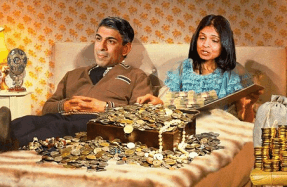

Stuart Vyse is a behavioural scientist, teacher, and writer. He is a columnist with Skeptical Inquirer magazine and has written for the Observer, The Atlantic, and Time. He is the author of Believing in Magic, which won the William James Book Award; Going Broke; Superstition; and The Uses of Delusion. As an expert on superstition and irrational behaviour, he has been quoted in The New York Times, the Washington Post, the Los Angeles Times, and has appeared on CBS, CNN, and PBS NewsHour.
Zan Boag: How would you define certainty?
Stuart Vyse: As humans, certainty isn’t something we have a lot of. Obviously, there are mathematical definitions of certainty and uncertainty, but psychologically, what matters is that you are able to predict and count on things happening in your world enough to function and to do so without anxiety or worry.
Is there a connection between certainty and superstition?
A very strong one, yes. The whole purpose of superstition is to combat uncertainty. If you know something is going to happen and you want it to happen, then there is no need for superstition. Superstition does not crop up in those cases.There are no superstitions about walking because mostly we can do that with some degree of confidence, but there are superstitions about things that we can’t be confident about and yet we care about.Things we either want to happen or want not to happen. So, there’s a very strong connection between uncertainty and superstition.
You’re a behavioural scientist, so you investigate human behaviour to work out why people do what they do. What was it that drew you to investigate superstition and delusion in particular?
Well, it actually is based on a personal experience. I was in graduate school many years ago as a budding psychological scientist, and I read an article. This is the kind of thing that people who write boring journal articles dream of happening. As a result, Barry Schwartz should be very flattered. I read an article many years ago by psychologist Barry Schwartz about college students trying to earn points at a simple computer game when they didn’t know what




